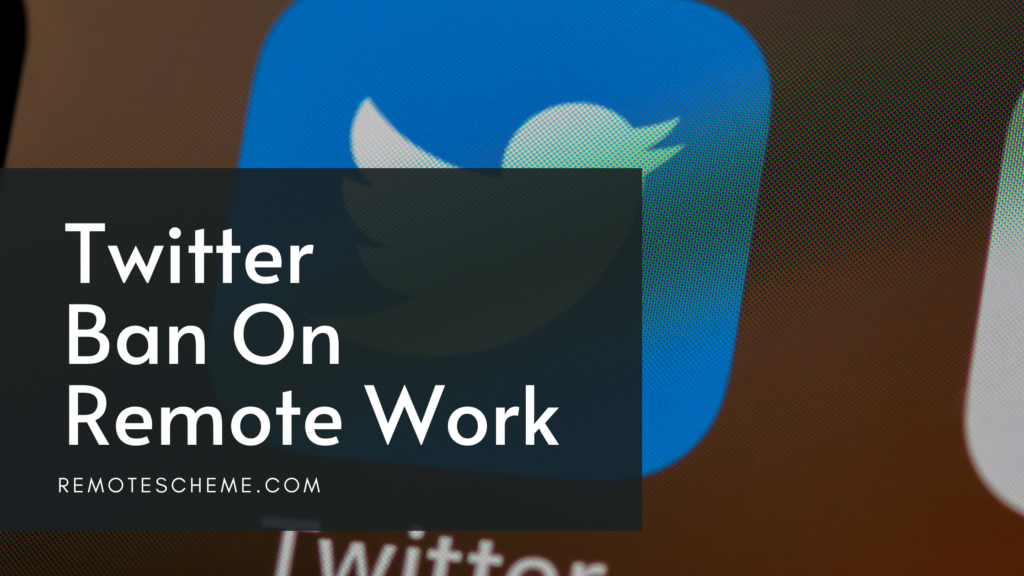Over the last few years, remote work has gained a lot of traction in the business world.
Companies are realizing that many of the employees they’ve been forcing to work from the office can work far more effectively and with higher morale when they have the freedom to work from home, the coffee shop, or wherever they might be the most comfortable.
It also allows companies to source employees from a far larger pool without relying on relocation deals and similar arrangements that make hiring difficult.
However, the transition to moving entire departments to a remote or hybrid working experience has not been without its issues.
In 2023, companies are looking to address those issues by focusing on corporate culture overhauls, protecting employees and company data over digital connections that are growing riskier by the day, and a large variety of other key aspects of remote work.
We’re going to go over 20 of the ambitious goals the world’s most prominent companies are aiming to achieve throughout 2023 and how they’ll affect the remote work craze.
Let’s get started.
#1. Equipment Customization And Freedom To Choose
As remote work started to pick up, many companies thought it was a better idea to have strict equipment requirements to ensure workflow was optimized. This included company-supplied or required computers, phones, and other pieces of equipment.
As the remote work trend has taken off, these requirements have been relaxed. Now, the majority of remote workers have the power to customize their equipment to match their specific needs and create a comfortable and productive atmosphere.
This will likely become the standard across the majority of industries in 2023.
#2. Enhanced Company Culture
One thing tends to drive away talent more than anything else, and it’s been a major problem for companies dealing with remote work as of late. Company culture has been lacking over the last decade or so, and the effect that has on workers has been noticeable.
To help retain workers and foster higher morale, companies are taking a far more targeted approach to ensure remote workers enjoy a better work-life balance, healthier lifestyles, and a more enjoyable work experience overall.
#3. Off-The-Clock Relationship Building
Having thriving work relationships is one of the most difficult parts of working remotely, and companies have taken notice.
You can expect to see “employee retreats” becoming commonplace for remote workers to take time to meet in person and build their relationships; resulting in heightened trust, communication, and productivity.
#4. Increased Focus On Cyber Security
Cyber security has always been a major concern for companies. They’re prime targets for high-value cyber attacks. With remote workers leveraging tech outside of the company network, that risk is a lot higher.
2023 will see a heightened focus on cyber security via policy changes, software solutions, and various other mechanisms to protect companies and remote workers alike.
This is crucial to prevent ransomware attacks, data theft, and more in an increasingly dangerous online environment without employees having on-site access to a company’s IT system.
#5. Encouraged Prioritization Of Health
Working from home makes it possible to pursue healthier lifestyles, but many remote workers are so pressured to perform that their exercise regimens fall by the wayside.
Companies are noting how lowered physical health impacts productivity, and they’re going to be encouraging regular exercise and wellness regimens to keep employees fit and healthy while dealing with their work obligations.
#6. Scheduling Considerations
Remote work has opened up possibilities for workers from around the world to collaborate on intricate projects no matter where they’re at.
However, this has produced scheduling problems. Employees can’t be expected to attend virtual meetings at three in the morning because the department head is in a different time zone.
Companies are leveraging scheduling software that allows asynchronous scheduling to resolve this issue. This will help companies find optimum scheduling times for everyone involved in a project.
#7. Mental Health Resources
Working remotely can take its toll on one’s mental health. The lack of socialization and the requirement to stay on task despite not being in a traditional work environment can lead to burnout and a number of other mental setbacks.
You can expect to see a lot of companies leveraging partnerships with remote therapy and mental health services to offset these effects, and some have already started doing so with amazing results.
#8. Leveraging Social Media
Social media has been a huge part of the business world for the better part of a decade, but the advent of remote work has opened new possibilities for it.
Not only can companies continue to use it for marketing purposes and customer outreach, but many companies are leveraging it as a professional way for employees to stay connected, collaborate, and remain productive without the need for an in-house platform.
#9. Leveraging Zoom And Similar Virtual Meeting Programs
Using casual get-togethers to discuss business in a comfortable setting has been a mainstay for decades. However, that’s not practical when teams or applicants are distributed around the country or even around the globe.
These casual meetings are starting to take place on Zoom and similar chat programs to facilitate the same results without the need to travel.
#10. Cloud Computing
Cloud computing is already used extensively with remote work, but you can expect it to become an even more prominent part of the industry in 2023.
Cloud computing allows for unparalleled access to corporate-level tools and software without extensive at-home equipment, more reliable data transfers, easier collaboration, and more.
#11. More Inclusivity
Remote work expands the potential hiring pool far beyond local talent and people who are willing to relocate. With remote work, companies can hire the best applicants in the world.
Expect this to be a main focus with remote work as companies leverage it in their favor and increase diversity, and new approaches will be taken to accommodate a diverse talent pool.
#12. Comprehensive Policy Adjustments
Remote work poses a lot of company-side risks, and it’s far more difficult to handle each potential situation on a case-by-case basis.
Because of this, many companies are fully reinventing their policies to protect their interests, keep everything moving smoothly, and guide employees through every potential situation possible.
#13. Webinar Resources
In a physical work environment, teaching employees new skills or offering opportunities for skill advancement is fairly easy.
That becomes a more difficult task when it’s handled remotely, but it’s still a great way to improve what an employee has to offer as well as give employees new opportunities if they put in the effort.
Many companies are developing online webinars to replace the in-person skill workshops that were more commonly used before the remote work boom.
This will allow for skill increases that can be used in-house or in future work opportunities, and there’s no need for remote workers to leave their homes or travel to take advantage of these opportunities.
#14. Side Hustles
This is a trend that is forming among remote workers. Working from home provides the opportunity to truly maximize one’s earning potential.
Many remote workers are taking on remote side hustles they can do in their free time with the same equipment they use for their primary job.
This allows them to increase their revenue, build their skills, and pursue goals they have outside of their professional career.
#15. Nomadic Working
This is another trend employees are creating on their own. If all you need to work remotely is a computer and a WiFi connection, why not take the nomadic approach?
Many remote workers are beginning to travel abroad while fulfilling their work obligations. This combines recreational travel and works to maximize one’s work-life balance and sense of life fulfillment.
#16. Increase In Hybrid Possibilities
Sometimes, remote workers still want to get into a highly focused environment with coworkers nearby. It’s just easier to be productive.
Companies are recognizing this and offering hybrid work opportunities. This is when employees are free to work remotely, but there is still a physical office for them to come to when they need it.
#17. Remote-First
A lot of the companies that have adopted remote working models started with in-person, traditional interviews. Now, they’re taking the hiring process to the remote world.
This allows companies to hire employees abroad, and it makes the entire work model match a remote theme. Expect to get interviews over platforms such as Zoom for jobs that allow for remote or hybrid working.
#18. Empathy
One downside to remote working is that much of it is done via webcam in environments that aren’t necessarily professional.
Yesteryear, employees might have gotten reprimanded for having a professional call with children in the background or a cat walking over a keyboard, but employers are taking a more empathetic and understanding approach to these common facts of life.
There’s no more reason to feel self-conscious about such minor details.
#19. Increase In Relevant Productivity Tools
Remote work poses some new distractions for workers. They often have to deal with their families, pets, the urge to procrastinate, and other issues that aren’t present in a traditional work environment.
Many workers are adopting white-noise apps, timers, apps that block other distracting apps for the work period, and more to increase productivity.
#20. Remote Work Health Insurance
Offering health insurance is standard for most good companies. However, remote work opportunities often leverage “independent contractors” or other technical loopholes to avoid offering medical insurance.
Now, that’s changing.
Employers understand that even remote workers need health insurance to keep them healthy and productive, and it’s a benefit that attracts higher-quality talent. Expect to see remote-worker-targeted health insurance this year across the industry.
Remote Work Is Evolving For The Better
The business world has had a few years to analyze the effect of remote work on employees, and employees have found some ways to maximize their opportunities in that time, as well.
Now, the business world is taking action to improve remote work going forward.
Remote workers should expect to see improvements in their out-of-work opportunities, insurance prospects, cyber safety possibilities, and more that simply weren’t possible one or two years ago.




